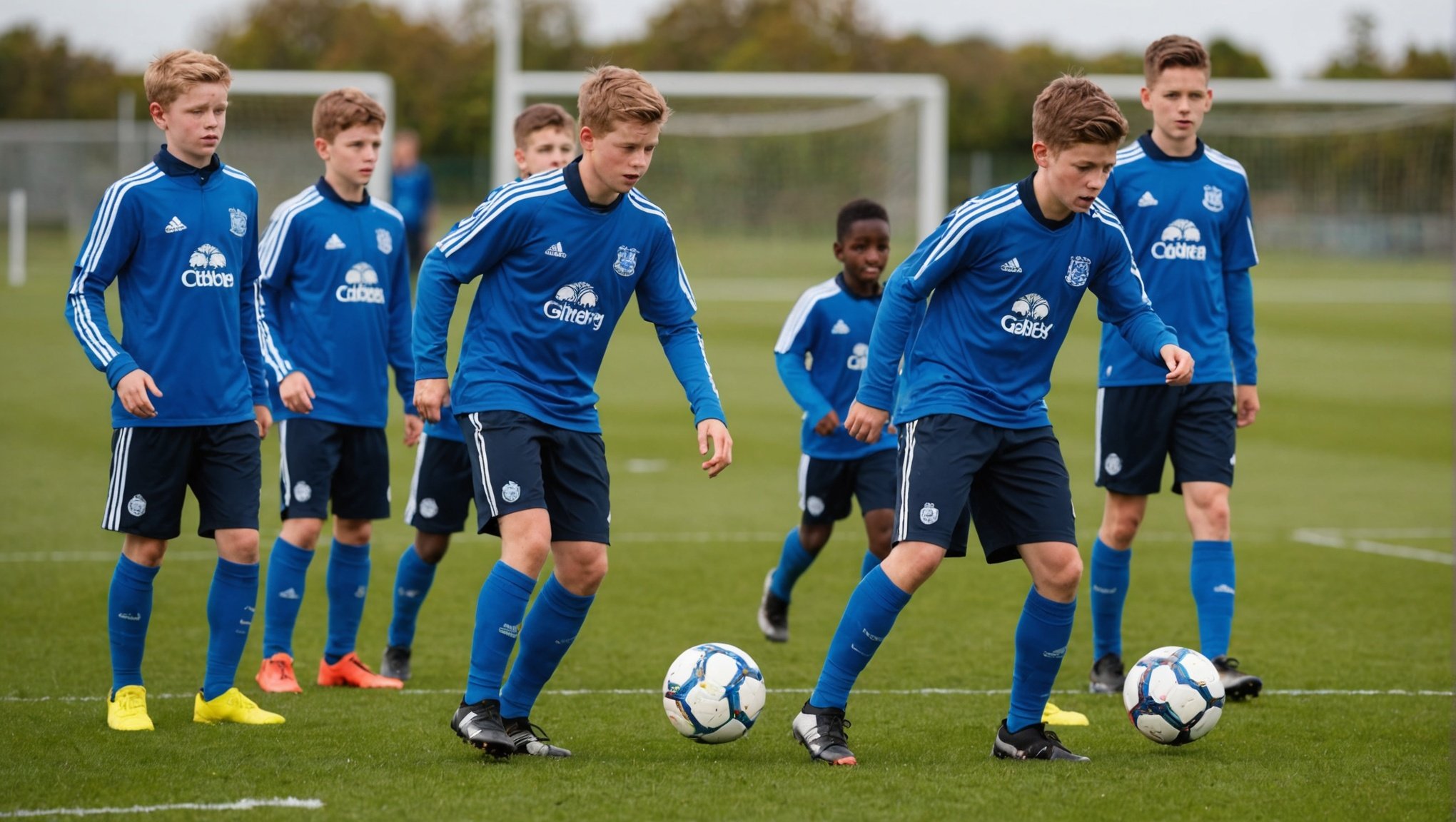In the competitive realm of UK football, academies play a vital role in preparing young talents for professional trials. Implementing effective strategies is essential to nurture skills and foster resilience. Comprehensive training programs, mental conditioning, and exposure to real-game scenarios enable aspiring players to showcase their potential. This article explores innovative approaches academies can adopt, ensuring young athletes are equipped not only with technical abilities but also with the mindset needed to thrive in professional environments. Join us in uncovering these key strategies that can make a difference on the journey to success.
Understanding the Landscape of UK Football Academies
In the realm of UK football academies, the focus on youth development is paramount. These academies serve as the breeding ground for the next generation of football talent, offering structured training and education. Their role in nurturing young athletes cannot be understated, as they provide a comprehensive framework that combines both athletic and personal growth.
Also to see : Boosting Young Players” Minds: Innovative Strategies for Cognitive Skills Training in Football Academies
Football academies in the UK are renowned for their rigorous training programs and high standards. They are instrumental in developing technical skills, tactical awareness, and physical fitness. The importance of youth development is evident, as academies invest heavily in resources to ensure that young players reach their full potential.
One of the primary goals of these academies is to prepare players for professional trials. The pathway to professional football often involves progressing through various age groups within an academy, receiving expert coaching, and participating in competitive matches. These experiences are crucial as they provide young players with the opportunity to showcase their skills and gain exposure to scouts and clubs.
This might interest you : Unlocking Potential: Strategies for Football Coaches to Cultivate Leadership Skills in Young Athletes
The journey from academy to professional trials is challenging, but with dedication and the right support, many young athletes successfully transition to professional football, fulfilling their dreams of playing at the highest level.
Skill Development Strategies for Young Players
In the dynamic world of football academies, mastering skill development is crucial for young athletes. Effective training methodologies are the backbone of enhancing a player's abilities. These methodologies are designed to refine technical skills, improve agility, and build tactical awareness. A well-structured training program often involves repetitive drills, game simulations, and feedback sessions, ensuring that players are equipped with the necessary tools to excel on the field.
Position-specific training is another key element in a player's development. Understanding the unique demands of different positions allows for tailored coaching techniques. For instance, a midfielder might focus on passing accuracy and spatial awareness, while a striker may concentrate on finishing and off-the-ball movement. This targeted approach ensures that players develop the specific skills required for their roles.
Incorporating technology and analytics has revolutionised player development. Tools such as video analysis and performance tracking provide invaluable insights into a player's strengths and areas for improvement. By leveraging data, coaches can create personalised training plans that address individual needs. This integration of technology not only enhances skill development but also prepares players for the modern game's demands, where analytical understanding is as important as physical prowess.
Mental Preparation for Professional Trials
In the high-stakes environment of professional trials, mental preparation is as crucial as physical training. Young athletes often face immense pressure, making psychology in sports a vital component of their development. Techniques to build mental resilience are essential in helping players manage stress and maintain focus. This resilience is cultivated through practices such as mindfulness and stress management exercises, which enable athletes to remain composed under pressure.
The role of sports psychology extends beyond mere stress management. It involves fostering a performance mindset that encourages athletes to embrace challenges and view setbacks as opportunities for growth. Sports psychologists work closely with players to develop this mindset, often using cognitive-behavioral strategies to enhance self-belief and confidence.
Goal setting and visualization exercises are powerful tools in this psychological toolkit. By setting clear, achievable goals, athletes can maintain motivation and track their progress. Visualization, on the other hand, allows players to mentally rehearse scenarios, improving their decision-making and reaction times during actual matches. These exercises help create a mental blueprint for success, ensuring that when the time comes, young athletes are mentally equipped to perform at their best.
Networking and Exposure Opportunities
In the competitive world of football, networking and exposure opportunities are pivotal for aspiring players aiming to catch the eye of scouts. Building relationships with scouts and agents can open doors to professional trials and contracts. Engaging with these key figures involves attending events, maintaining professionalism, and demonstrating consistent performance on the field.
Participating in tournaments and showcases is another critical avenue for exposure. These events provide a platform for players to display their skills in front of a wide array of scouts and agents. The competitive nature of these events not only tests a player's abilities but also offers invaluable networking opportunities. Being seen at these events can significantly enhance a player's visibility and chances of being scouted.
In today's digital age, social media plays a crucial role in player promotion. Platforms like Instagram and Twitter allow players to share highlights, training routines, and achievements with a broader audience. This digital presence can attract the attention of scouts who are increasingly using social media to discover talent. By effectively utilising these platforms, players can increase their visibility and create additional exposure opportunities, complementing traditional methods of networking in the football industry.
Success Stories and Case Studies
In the realm of UK football academies, success stories often serve as powerful motivators for aspiring athletes. These narratives are not just tales of triumph but also provide insights into the methodologies that drive success. An analysis of successful academies reveals a consistent focus on fostering a supportive environment, where technical excellence and personal development go hand in hand.
Case studies of players who have transitioned from academies to professional football illustrate the diverse pathways to success. For instance, many players attribute their achievements to the rigorous training programs and mentorship received at these academies. These experiences have equipped them with the skills and confidence necessary to excel on the professional stage.
However, not every journey is smooth. Player testimonials often highlight the challenges faced along the way, including injuries and intense competition. These stories underscore the importance of resilience and adaptability. Lessons learned from setbacks are invaluable, teaching young athletes to view failures as stepping stones rather than obstacles.
Ultimately, the combination of structured training, support systems, and personal determination forms the bedrock of these success stories, offering a blueprint for future generations aiming to make their mark in professional football.













